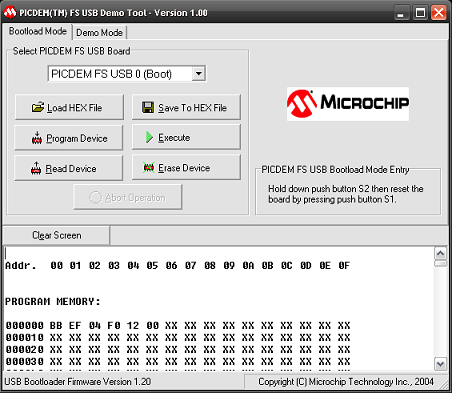
A man in a bar cracks his fingers before a fight. A pianist cracks his fingers before playing, but why in the world does Kaneki do this? In the start, it felt more like a symbolic gesture, but as I looked deeper, I feel Kaneki cracking his finger is more than just a symbolic attribute. It’s more like he wants to convey something. Hence I started investing it and here’s my theory. The cracking of fingers symbolizes two things, the abuse and abused, i.e the victim. Jason behaved in a psychotic way, not because he was born with illness but because he was tortured by a violent investigator.
 Unconsciously, my finger silently cracked. All hail the finger crack. I only started cracking my fingers like kaneki ironically when tokyo ghoul first came out but.
Unconsciously, my finger silently cracked. All hail the finger crack. I only started cracking my fingers like kaneki ironically when tokyo ghoul first came out but.
The cracking of fingers is a portrayal of strength and dominance in a fight.
“Doesn’t that hurt?” “It will give you arthritis!” “That’s the most bone-chilling sound in the world.” I’ve heard it all. And I know, my knuckle-cracking habit isn’t exactly flattering.
But I can’t help it. I’ve been popping my fingers, back, neck, and other appendages for years. I don’t even remember when I first started. Elementary school?
By now, cracking my knuckles is as deeply embedded in my lifestyle as when my pucker feels dry. (I even force my boyfriend to crack my back for me sometimes—a textbook case of codependence.) Sure, I’ve gone through sober periods where I’ve put my habit on hold, but mostly, cracking my knuckles feels as necessary as scratching a needling, torturous itch. That said, I don’t want to be the person who pops her knuckles all day at work. Even I’ll admit that the noise is disturbingly loud for such a small action.
Plus, I’m sick of hearing people tell me I’m damaging my joints. Cracking my knuckles isn’t actually harming me, right? Actually, while we’re asking questions, what is knuckle cracking, anyway? To find out once and for all, I spoke to San Diego–based chiropractor Ryan Curda, DC, as well as New York City–based physical therapist Scott Weiss, DPT. For medically supported answers to all the questions you’ve ever had about cracking your knuckles, keep reading. It’s a simple question, but one most of us have asked ourselves: What’s at work in the body when we hear that popping sound?
“Many believe that cracking knuckles is the bones realigning, which couldn’t be further from the truth,” says Weiss. Actually, the process has to do with your joints. “ Knuckle cracking is the audible sound that occurs when the joints of your fingers are stretched,” says Curda. “These joints are called synovial joints and are surrounded by fluid-filled capsule.” That fluid, called synovial fluid, is there for lubrication and is made up of dissolved gases—mostly nitrogen, Curda says.
When you pull or bend your fingers (the two most common cracking motions), you stretch that fluid-filled capsule. This decreases pressure inside the gas-packed fluid, causing a small nitrogen bubble to form and then instantly pop. “ The collapsing bubble is what causes the audible crack that we hear,” says Curda. ( of the whole process, if you want a helpful visual.) As for why the sound is so dang loud, science still isn’t totally sure.
However, they do know why you can’t crack the same joint over and over again. “The gases take about 20 minutes to fully dissolve back into the fluid,” says Curda. That’s the refractory period—the amount of time that needs to pass until you can get cracking again. “Aside from some degree of compulsion [aka decades of habit], cracking the knuckles actually releases several pounds of pressure from the joints,” Weiss explains.

As you use your hands throughout the day and the muscles tighten up, the joints end up feeling tight as well. “Cracking the knuckles gives your fingers and joints a stretch to relieve that pressure buildup,” says Curda. In other words, people crack their knuckles for the same reasons they might take a in the middle of the day.
It’s a feeling of ahhhhhhh. So what separates the normal people from us knuckle-popping junkies? “ People that use their hands and fingers regularly during the day without otherwise stretching will feel the need more often,” says Curda. So, writers, coders, surgeons, those people who paint teeny-tiny messages on grains of rice. But knuckle-cracking dependence goes further than that. Once you get into the habit of cracking, you become hooked on that —even the sound itself, says Weiss.
“Cracking the knuckles is definitely addicting,” he affirms. It’s not something you can stop on a dime (no matter how much your family members and co-workers complain). Ah, the million-dollar question.
I always wrote off the warnings of arthritis the same way I ignored my grandmother when she told me if I crossed my eyes enough they’d get stuck that way. Though the phenomenon is somewhat under-studied, science agrees: “ There is no evidence that cracking your knuckles has any detrimental effect on your body,” says Curda. 
- Author: admin
- Category: Category